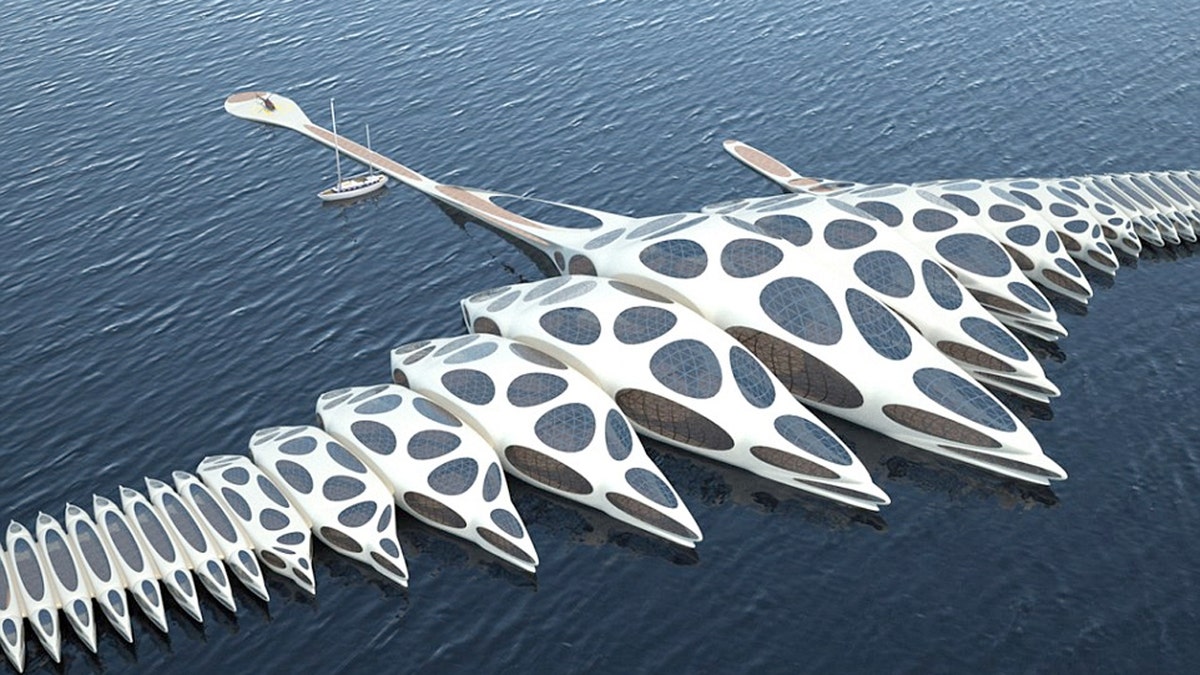
The MORPHotel design is a hotel with the ability to adapt and move with the ocean currents. (Gianluca Santosuosso)
It's a hotel, it's a cruise ship. Wait. It looks like both.
A London designer has come up with a concept for a futuristic floating hotel that brings new meaning to life on the high seas.
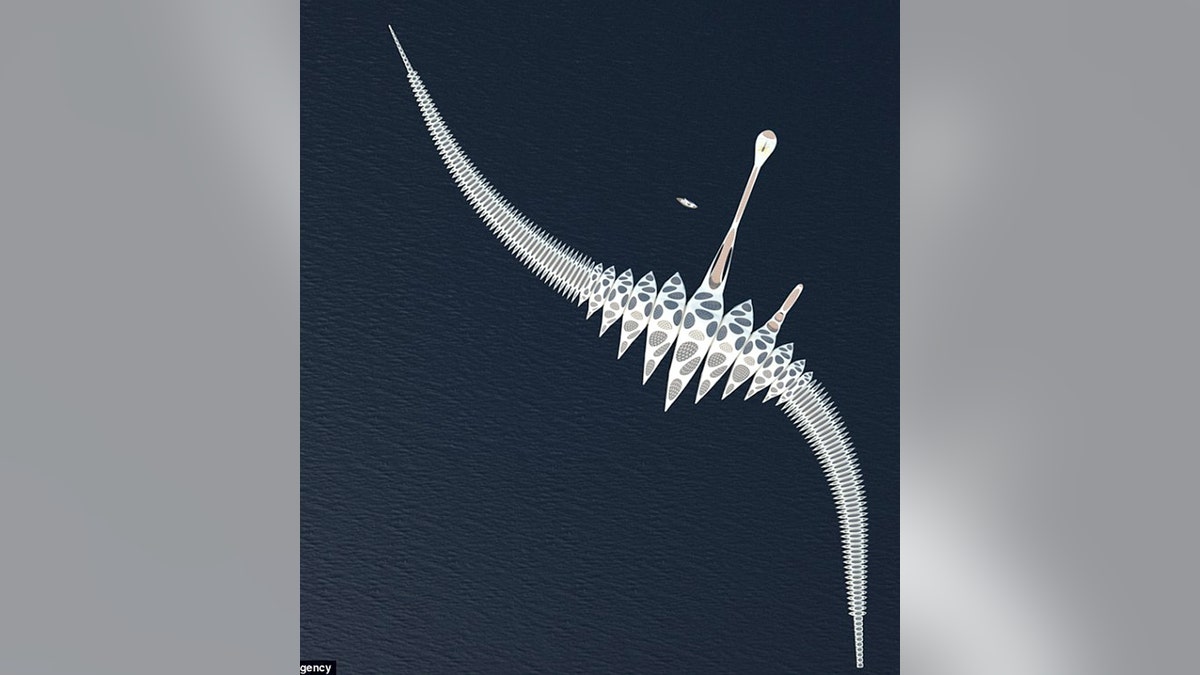
Guests would get an ever-changing view from their rooms because it will be constantly moving across the ocean –but at a rate slower than an average boat. (Gianluca Santosuosso)
Called the MORPHotel, it’s the brainchild of Gianluca Santosuosso, who envisioned a hotel with the ability to adapt and move with the ocean currents.
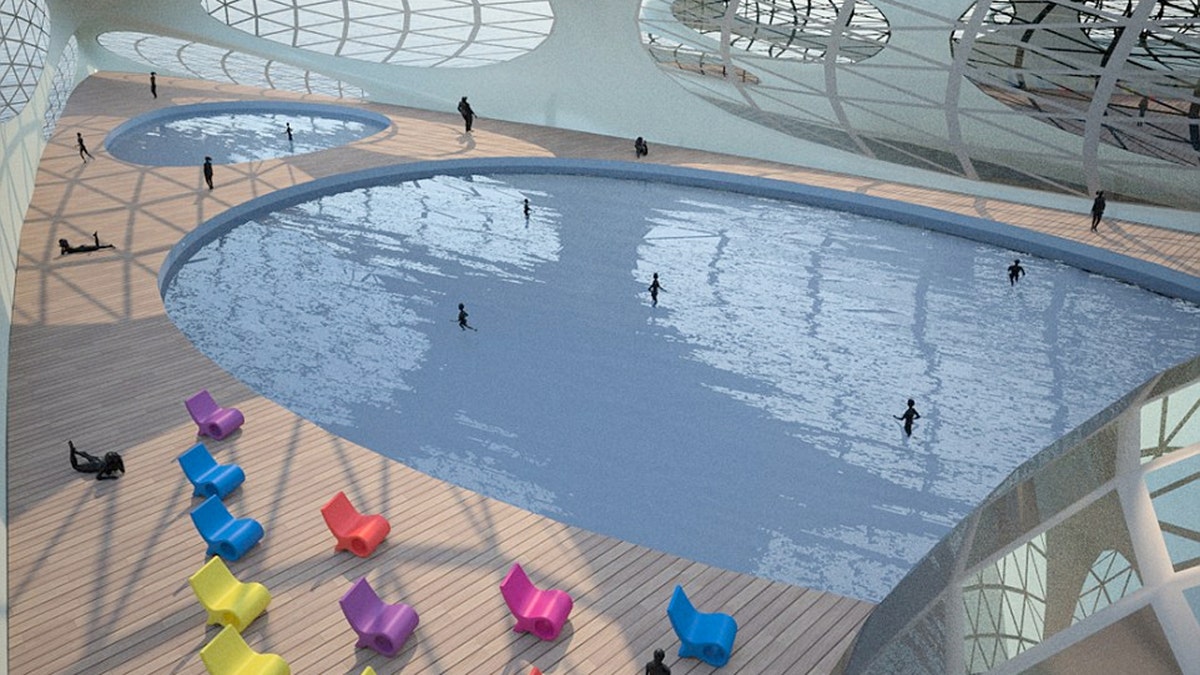
The capsules house rooms, restaurant and luxury facilities, such as a pool, and a helipad. (Gianluca Santosuosso)
The “floatel” ecosystem is developed with a linear, spinal structure about a half a mile in length composed of individually connected capsules that house rooms, restaurants and other luxury facilities, such as a pool. The floating hotel also features a helipad so passengers can fly aboard regardless of where it is in the world.
Guests would get an ever-changing view from their rooms because the craft will be constantly moving across the ocean –but at a rate slower than an average boat.
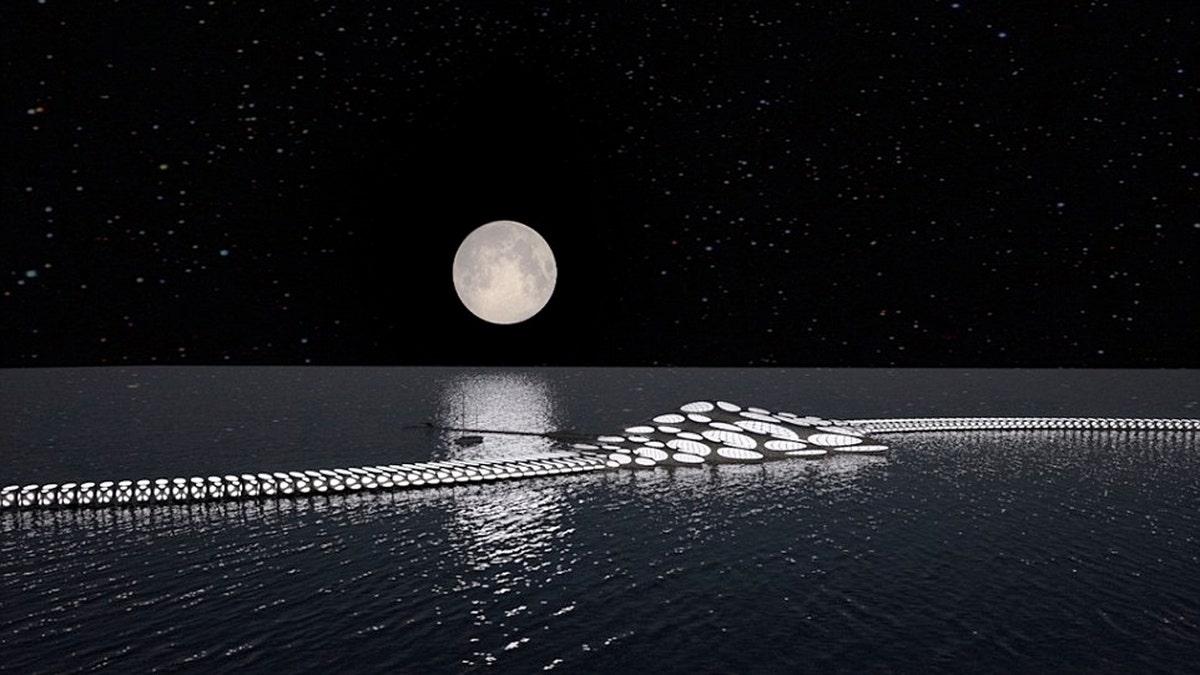
It’s designed with integrated solar panels, rainwater harvesting and a floating vegetable garden. (Gianluca Santosuosso)
At each end, individual pods would be able to detach from the main ‘vertebrae’ --like boats and sail within a fixed distance.
"I believe the idea of the journey itself, without a precise destination, is a dream shared among most people," Santosuosso told The Daily Mail. "This is the reason why this project, the idea behind it, raised the interest of many people, especially in the hospitality industry."
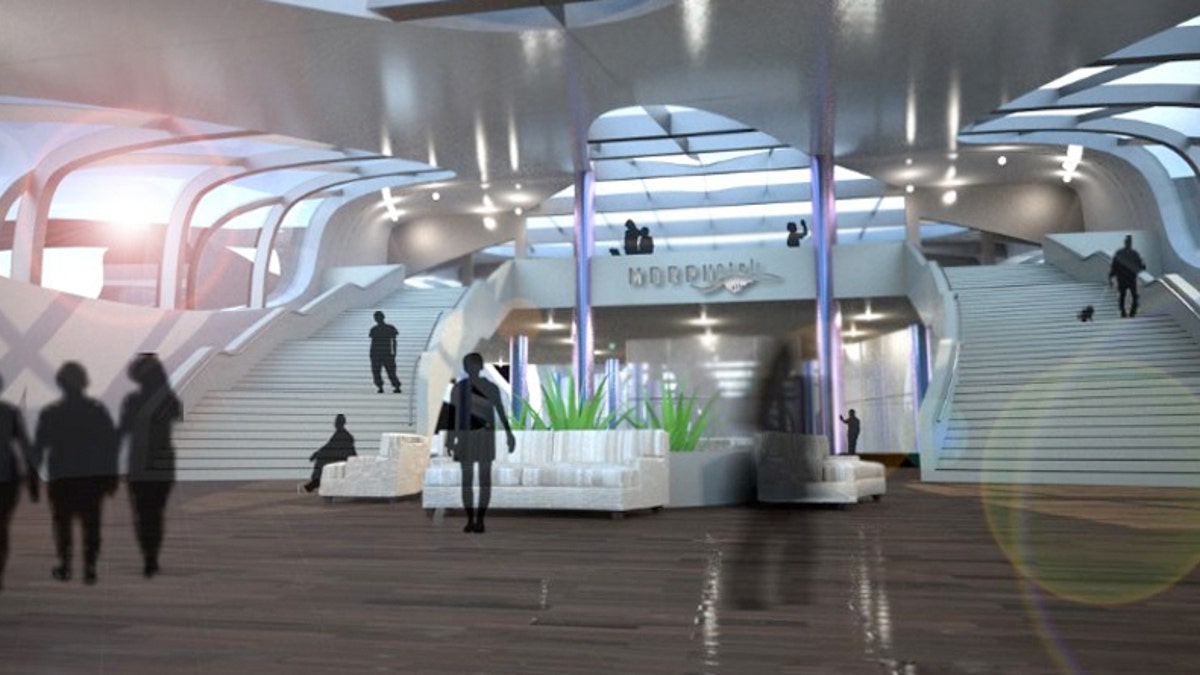
The ‘barycentric dock’ attaches the hotel to the harbor--which allows the craft to be an extension of the city. (Gianluca Santosuosso)
While it’s also designed to be as self staining as possible, with integrated solar panels, rainwater harvesting and a floating vegetable garden, it’s made to tie up at ports using a ‘barycentric dock’ which attaches the hotel to a city's harbor--allowing it to be an extension of place they're visiting.




















